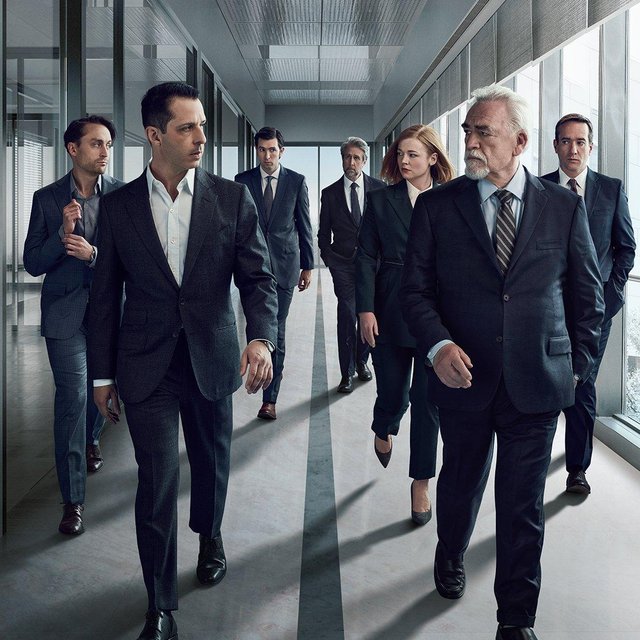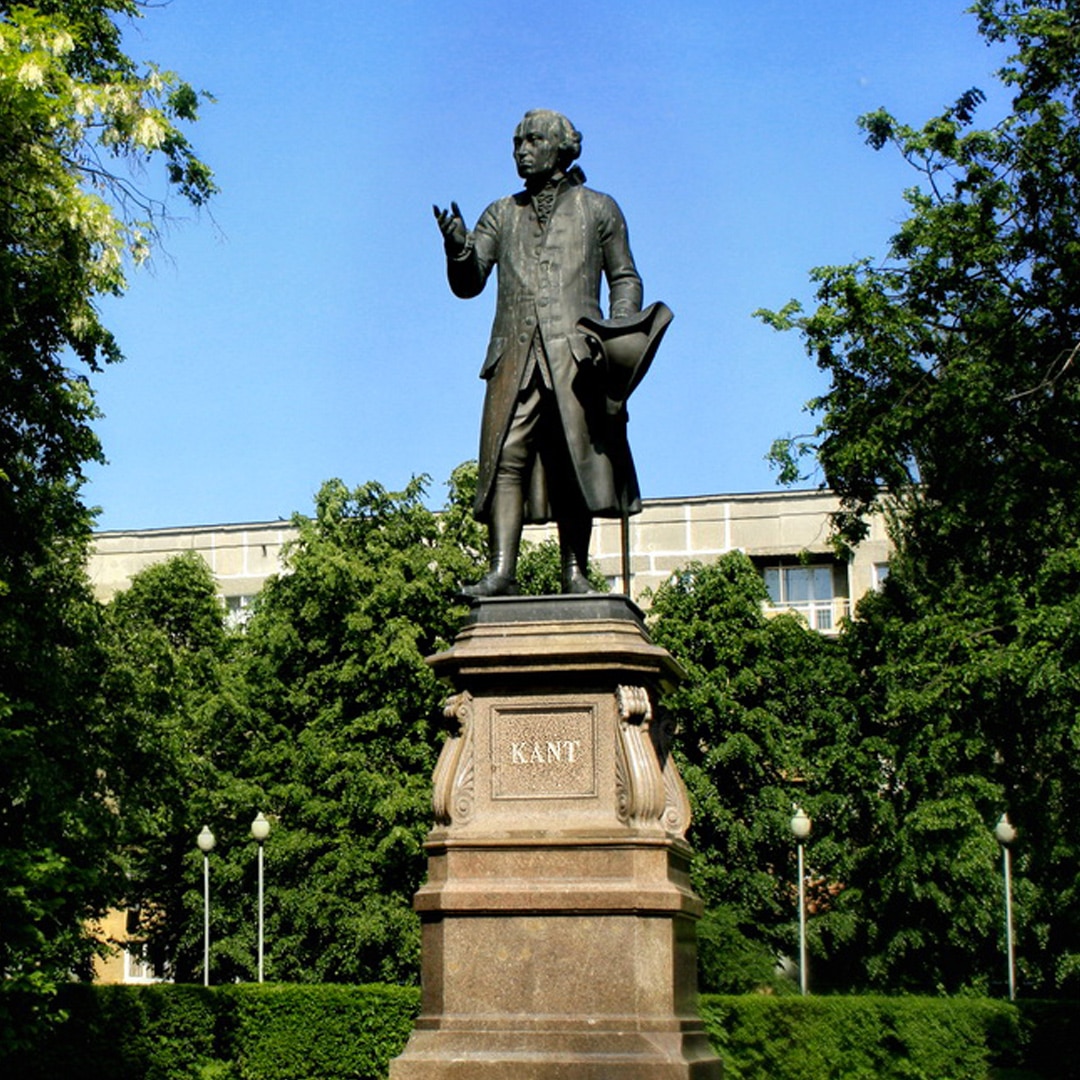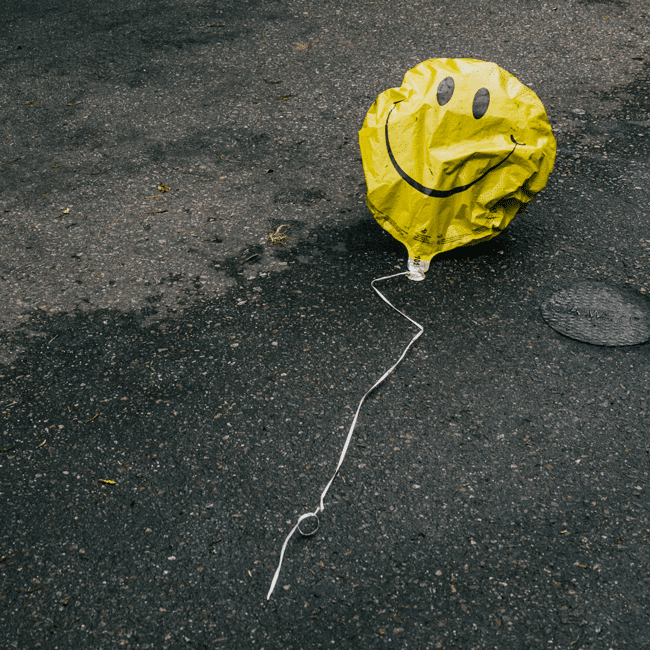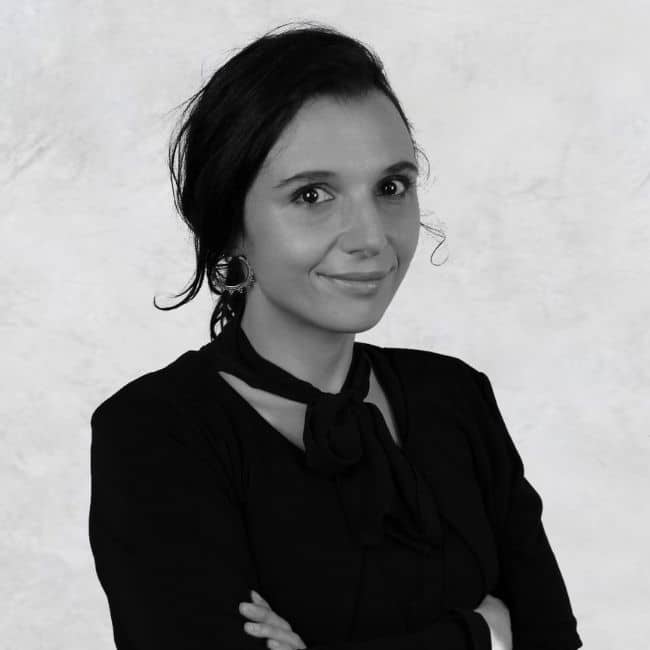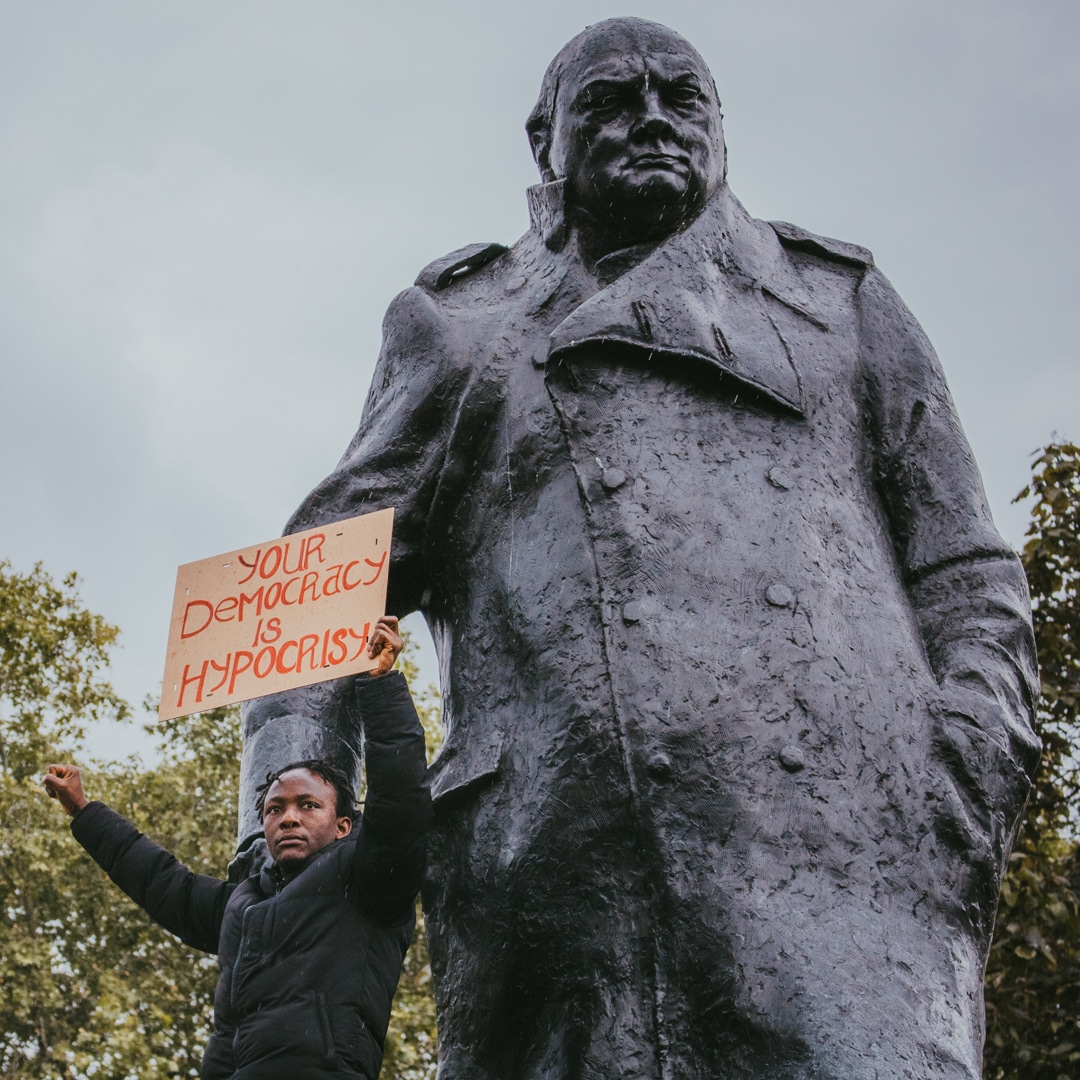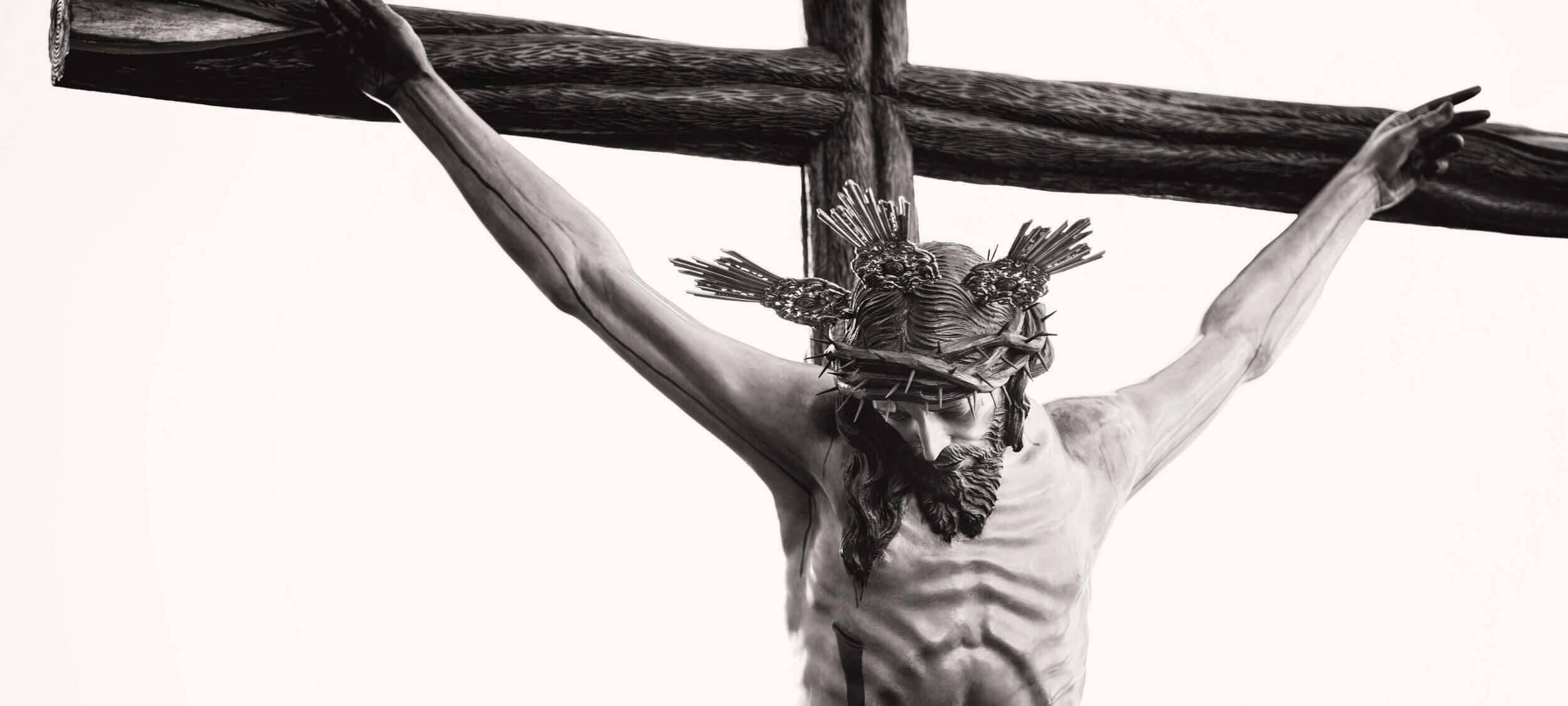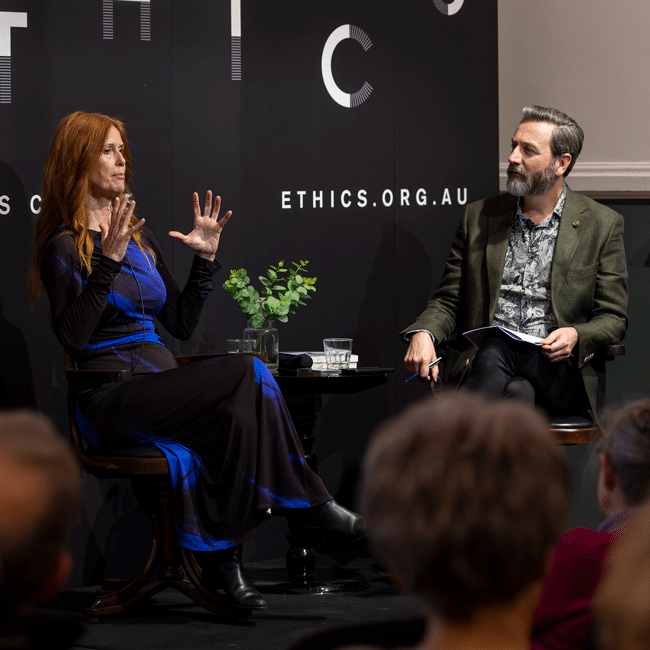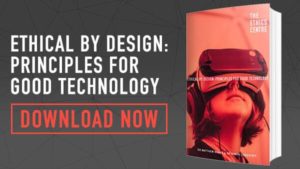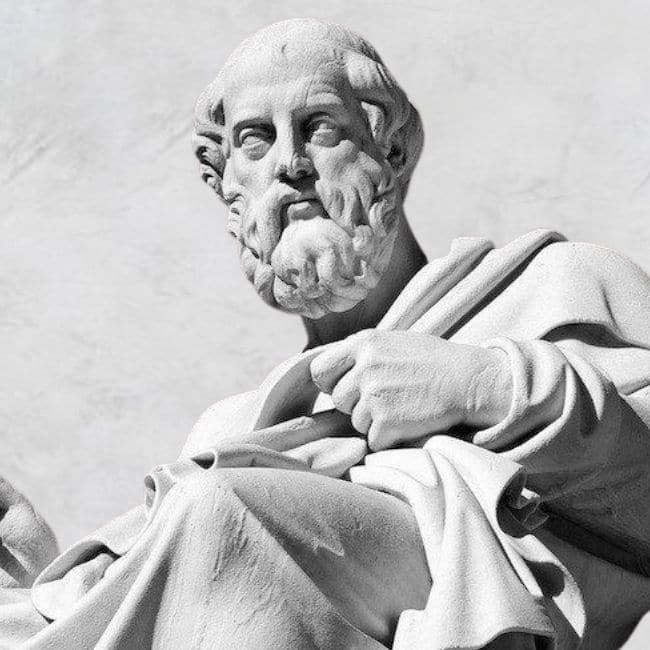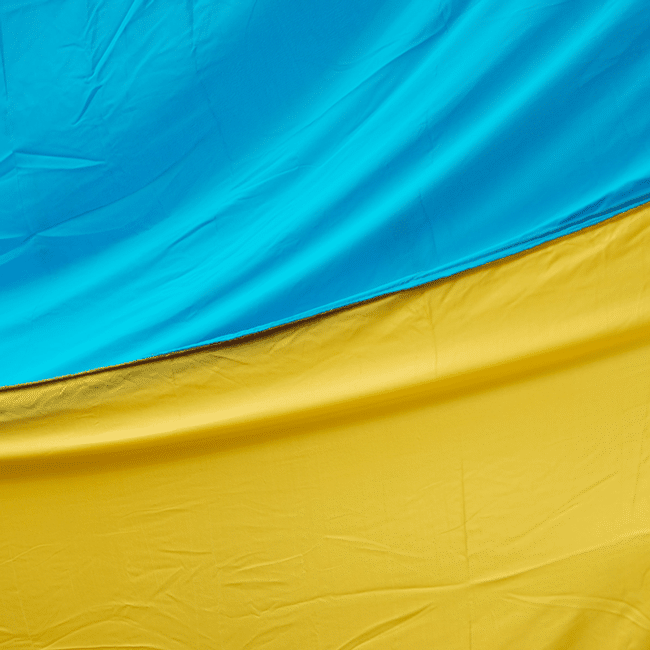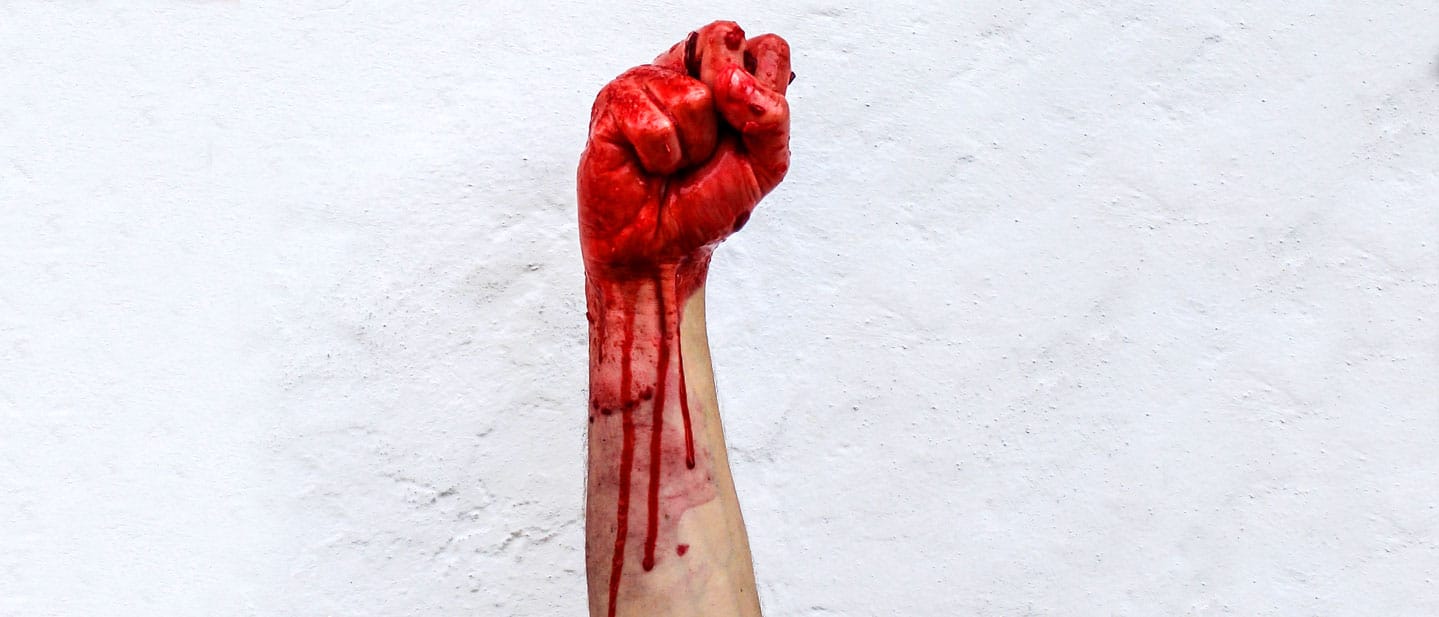The dilemma of ethical consumption: how much are your ethics worth to you?

The dilemma of ethical consumption: how much are your ethics worth to you?
Opinion + AnalysisClimate + EnvironmentHealth + WellbeingRelationships
BY Matthew Beard The Ethics Centre 21 JUL 2020
Everyone, rich and poor alike, should be able to buy the cheapest product with a clean conscience.
This article was written for, and first published by The Guardian.
In the lead-up to a recent buck’s party, the group chat turned to the age-old question: will there be strippers? After some back and forth (for the record, I was opposed), the groom-to-be stepped in with the veto. “No strippers!” he declared.
His reasoning demonstrated a remarkable level of self-knowledge. He explained that he was planning on the weekend being filled with inhibition-reducing substances and didn’t trust his addled self to make smart decisions.
In doing so, he gave voice to a basic moral principle: better to avoid temptation than to overcome it. From Mufasa to Gandalf – and the Lord’s Prayer – we’re told that while it’s good to be able to resist vice when it calls to us, there’s wisdom in arranging our lives in a way that minimises our exposure to vice altogether.
Unfortunately, that advice is nearly impossible to follow when it comes to participating in the market. Increasingly our decisions around what we buy come with a trade-off: the more sustainable, ethical, fair trade option or the cheaper, potentially dodgier one.
Take an easy example: eggs. Do you want to buy them from the farms that give the chooks the best quality of life (comparably speaking)? Free range, organic and more than twice the price of the quick-and-dirty caged eggs stashed at the bottom of the shelves. For many of us, this is a fairly straightforward choice – the price to put our money where our morals are is relatively low, though even here, the lower your budget, the harder the ethical choice becomes. What happens when we increase the costs?
If we stop thinking with our stomachs, the problems get even larger. I recently informed my financial planner that I wanted to move my superannuation to an ethical investment fund. He did his job and showed me the comparison. If fees and returns for each fund performed as they had been, in 30 years’ time my superannuation would be $300,000 worse off investing in an ethical fund. Lead us not into temptation indeed.
There are a few perversities here. The most galling to me is that pitting money against morality is a regressive dilemma. The people who can most afford to pay their ethical way are the uber rich; those battling against the poverty line don’t have the option but to become complicit in animal wellbeing issues and clothing made in questionable conditions. They certainly can’t justify moving to a higher-fee fund just because it doesn’t invest in coal or tobacco.
There seems to be something uniquely cruel about creating a system that determines ethical seriousness by purchasing behaviour, thereby stigmatising the poor and lightening the load on the wealthy.
This only becomes more egregious when you consider the various ways in which wealth is accumulated under capitalism – often on the backs of the same workers who can’t afford not to be complicit in the ethical missteps that often end up lining the pockets of the very same elites who can then afford a clean conscience.
However, the choice remains difficult even for those who ostensibly can afford to take the financial hit for their ethics. It’s easy to compare the immediate, measurable and tangible cost difference of two products. Making a judgement regarding the vague, unquantifiable moral value of not investing in unethical practices or investing in exemplary ones is ambiguous. There’s no obvious benefit and thanks to the anonymity of the global market, we usually don’t see the harms inherent in the products we’re being offered. That’s a recipe for rationalising the choice that’s better for us and ours, no matter what the costs are to anonymous people, animals and ecosystems.
There appears to be little out for those wanting to be ethical consumers on a budget. Compromises and trade-offs will need to be made. You’ll likely need to benefit from practices that don’t align with what you think is right. However, the lie at the heart of the ethical consumption movement is to tell you this is your fault. It’s not. It’s the fault of a much larger system offering you choices that, in many cases, you simply shouldn’t be permitted to make.
I don’t want to be given the choice between forfeiting hundreds of thousands of dollars and compromising on my values. I don’t want to be offered the opportunity to buy clothes that are cheaper for me because disempowered workers paid the price in underpayment and subjugation. It’s too easy to justify the worse option. It’s too easy to be tempted.
You can contact The Ethics Centre about any of the issues discussed in this article. We offer free counselling for individuals via Ethi-call; professional fee-for-service consulting, leadership and development services; and as a non-profit charity we rely heavily on donations to continue our work, which can be made via our website. Thank you.
Ethics in your inbox.
Get the latest inspiration, intelligence, events & more.
By signing up you agree to our privacy policy
You might be interested in…
Opinion + Analysis
Business + Leadership, Health + Wellbeing
The super loophole being exploited by the gig economy
Opinion + Analysis
Health + Wellbeing, Relationships
Germaine Greer is wrong about trans women and she’s fuelling the patriarchy
Big thinker
Relationships, Society + Culture
9 LGBTQIA+ big thinkers you should know about
Opinion + Analysis
Relationships
Israel Folau: appeals to conscience cut both ways
BY Matthew Beard
Matt is a moral philosopher with a background in applied and military ethics. In 2016, Matt won the Australasian Association of Philosophy prize for media engagement. Formerly a fellow at The Ethics Centre, Matt is currently host on ABC’s Short & Curly podcast and the Vincent Fairfax Fellowship Program Director.
BY The Ethics Centre
The Ethics Centre is a not-for-profit organisation developing innovative programs, services and experiences, designed to bring ethics to the centre of professional and personal life.
Education is more than an employment outcome

Education is more than an employment outcome
Opinion + AnalysisPolitics + Human RightsSociety + Culture
BY Simon Longstaff 26 JUN 2020
The Federal Government recently announced university funding restructures that made a clear statement – to prioritise ‘useful’ degrees.
This decision is significant for a number of reasons. First, it has further shifted the cost of a university education away from government and onto students. It has done so on the assumption that education benefits the individual more than the society to which they contribute.
Second, the government has nominated some courses of study as being more likely to lead to employment than will others. Somewhat paradoxically, the government is reducing the cost of study for those most likely to get jobs, while increasing it for those it thinks will struggle to find employment due to their ill-considered choice of subjects. ‘Cost’ is deliberately unrelated to ‘ability to pay’ – and requires those with apparently poor employment prospects to subsidise the education of their more fortunate peers.
It’s clear that the government hopes market forces will encourage more people to take on ‘useful’ courses of study. However, in a further ironic twist, the new policy relies on the fact that many people will not. Otherwise, the economics won’t work. Fortunately (for the policy) there will be limited places available for the study of ‘useful’ courses in nursing, teaching and agriculture. This means that some of the students who rationally seek a ‘good deal’ will be forced to accept their ‘second choice’ – even to the point of having to suffer through a relatively expensive ‘dead-end’ degree in the Humanities.
However, this piece is not meant to be an examination of the paradoxes of government policy. Rather, I want to look at a deeper issue – the underlying assumption that resources are best invested in ‘useful’ things.
Demonstrating ‘usefulness’
This thinking stalks my waking hours – as it probably does anyone running an organisation that is not immediately and demonstratively ‘useful’. For those of us working in the not for profit world, the word ‘useful’ is never used. In its place is the notion of ‘impact’. Conventional wisdom dictates that one must demonstrate impact – or die!
The thinking that drives a demand to measure, report on and invest in ‘impact’ is the same thinking that leads a government to focus its investment in higher education on supporting courses that lead to the ‘jobs of the future’. With limited taxpayer and philanthropic dollars to spend, why not invest in those things that can prove themselves most effective? It’s easy to argue that this is the rational thing to do… but is it?
What is the ‘impact’ of Bell Shakespeare staging King Lear? What is the ‘impact’ of the National Gallery of Australia hanging Blue Poles? What is the impact of the Festival of Dangerous Ideas? I think it impossible to trace the impact of any of these works. We can measure outputs – the number of attendances, mentions in the media, donations received, and so on. But these numbers don’t identify the ideas or experiences seeded in the theatre, a gallery or at a festival that germinate – perhaps years later – and change the world.
Ideas can change the world
We underestimate the value of things like philosophy when assessed over the long term. Nearly every branch of knowledge that we draw on today including science, mathematics, economics, medicine and psychology were thought into existence by philosophers.
People motivated by nothing more than a love of wisdom (philo-sophia) have changed the world. The original concept of the atom came from Democritus. Pythagoras brought us the role of constants in mathematics. The classification of species began from Aristotle. Thomas Hobbes ideated the modern nation state. Adam Smith brought us the free market and Peter Singer animal rights. With the benefit of hindsight, their impact is obvious. But few of the world’s great philosophers could have demonstrated ‘impact’ while working on their seminal ideas.
I understand the strong desire to measure impact, to invest in making a tangible difference. I understand why governments want to fund ‘practical outcomes’ such as helping people to secure future employment. However, there is something deeply irrational about turning one’s back on forms of education and endeavour that emphatically shape the world – but at a pace and by means we cannot easily measure.
If ‘impact’ is the only measure of something’s worth, then we might as well close down the arts, the humanities, and a whole lot more. However, this would be to deny a fundamental truth that has informed all great societies: some things matter not because of their impact – but in and of themselves.
Ethics in your inbox.
Get the latest inspiration, intelligence, events & more.
By signing up you agree to our privacy policy
You might be interested in…
Opinion + Analysis
Relationships, Society + Culture
A parade of vices: Which Succession horror story are you?
Big thinker
Politics + Human Rights, Relationships
Big Thinker: Aristotle
Opinion + Analysis
Business + Leadership, Politics + Human Rights
Why fairness is integral to tax policy
Opinion + Analysis
Business + Leadership, Society + Culture
A win for The Ethics Centre
BY Simon Longstaff
Simon Longstaff began his working life on Groote Eylandt in the Northern Territory of Australia. He is proud of his kinship ties to the Anindilyakwa people. After a period studying law in Sydney and teaching in Tasmania, he pursued postgraduate studies as a Member of Magdalene College, Cambridge. In 1991, Simon commenced his work as the first Executive Director of The Ethics Centre. In 2013, he was made an officer of the Order of Australia (AO) for “distinguished service to the community through the promotion of ethical standards in governance and business, to improving corporate responsibility, and to philosophy.” Simon is an Adjunct Professor of the Australian Graduate School of Management at UNSW, a Fellow of CPA Australia, the Royal Society of NSW and the Australian Risk Policy Institute.
If we’re going to build a better world, we need a better kind of ethics

If we’re going to build a better world, we need a better kind of ethics
Opinion + AnalysisRelationshipsSociety + Culture
BY Matthew Beard The Ethics Centre 17 JUN 2020
At times of global crisis, it’s very tempting for moral philosophers to get an over-inflated sense of self-importance. Those who have dedicated their life to reasoning through matters of complexity – justice, rights, liberty and the rest – suddenly feel uniquely placed to make sense of what’s happening.
When philosophers intervene effectively in public debate, it’s often lauded as a breath of fresh air. If I had a dollar for every time someone had suggested I teach ethics to politicians, I wouldn’t need to teach anyone ever again.
Last week, Jared Field, a University of Melbourne mathematician and Gomeroi man argued in The Guardian that the recent destruction of the Juukan Gorge cave by Rio Tinto revealed the need for students of STEM to be trained in ethical reasoning.
Having myself argued for the need to include ethics within STEM, I desperately want to agree with Field. But in order for ethicists to provide the kind of education he hopes for, one in which scientists ask “am I being a good ancestor?”, the field of ethics first needs to reckon with its own history. Moral philosophers, as it turns out, don’t have the best ancestors.
Ethics, a branch of philosophy, is an intellectual tradition and an academic discipline that, like any other, has a history of sexism, racism and complicity with oppressive systems and regimes.
In the wake of the protests and riots following the killing of George Floyd, the solidarity that has been sparked across the globe, and the more targeted protests regarding Aboriginal deaths in custody here in Australia, I’ve started wondering about the legacy of the discipline. To follow Field’s line of questioning – what do ethicists have to do to ensure they’re being good ancestors?
I’m beginning to worry that some of the most basic ways we think and ‘reason’ (more on that word soon) about ethics, has a role in legitimising the very violence that ethicists and moral philosophers then seek to condemn.
This isn’t true of all philosophy – but it is typical of an approach that holds a lot of traction today because of its association with some of the most widely-known (and more importantly, widely taught) philosophers in history. It’s a notion of philosophy that sees it as an entirely rational exercise of developing and applying theories, ideas and frameworks in a vacuum.
This vacuum is meant to be liberating. It’s designed to be transcendental – elevating our ideas above what things appear to be so that we can articulate things as they really are, or as they should be. It’s from this vacuum that we get thought experiments and concepts like the trolley dilemma, the state of nature and the veil of ignorance. It’s also where we get a whole lot of applied ethical frameworks, like just war theory in military ethics, quality-adjusted life yields (QALY’s) in medical ethics and ‘use of force’ doctrines in policing ethics.
These theoretical frameworks provide us with a universal sense of what, for example, the ‘just’ use of police force looks like. To be considered ‘just’ (in Australia, at least) the use of force needs to be necessary, proportionate, reasonable, in pursuit of a legitimate goal and must aim to de-escalate or minimise harm.
When you run through these criteria as a list, it gives the sense of something comprehensive – that we could apply this framework to all cases and make some kind of reasonable judgement about whether the use of force is ethical or not. These approaches provide consistency, impartiality and at their best, capture something essential about the moral considerations at the heart of what’s at stake.
However, they also risk pulling the wool over our eyes, because they ask us to assume that when two people walk into this neat thought experiment, they too are transcendent. Their historical baggage, political status, social standing and whatever else defines their lived experience isn’t something to be wrestled with. Instead, the particularities of their lives and histories are something to be transcended.
What this means in the context of policing is that the very question of whether the police – as they have come to operate and function in a society – are legitimate or not is outside the scope of questioning. It means it falls to us to determine whether someone’s previous criminal status – itself likely intertwined with systemic injustices, social disadvantage and oppression – justifies a greater level of force, you know, because it’s proportional to the ‘greater threat’. The question ends, by accident or design, before we ask what role the colour of a person’s skin might have played in determining that use of force.
Philosopher and health researcher Bryan Mukandi describes this as a tendency to treat ethical decisions as an “atemporal phenomenon,” removing ethical decisions from the history that must inform them. It’s a phenomenon we have seen play out in the COVID-19 pandemic. Two patients arrive in need of a ventilator – one has promising health outcomes, the other doesn’t. The ventilator goes, according to many medical ethicists, to the one who promises better outcomes.
However, Mukandi points out that this, by design, overlooks the potential that the reason one person faces worse outcomes is because of a series of injustices they have experienced over the course of their life. Injustices that are not merely ignored at the moment of crisis, but which are relitigated against the person by denying them the same healthcare they have been denied again and again.
The false belief that ethics is an atemporal phenomenon has also been at work in the backlash against the Black Lives Matter protests around the globe. Conditioned to compare instances of violence only in the present, critics look at two instances of violence and treat them as equivalent. They have, by design, removed the most relevant factor – a history of deliberate, systemic violence and racism inflicted by one party on the other.
In so doing, they simultaneously rewrite the reality of the situation and claim some intellectual high ground, because they are the ones playing by the rules of rational thinking and reason. They are all too quick to spot an apparent contradiction in the logic of the other side after they’ve framed the terms of the debate and defined what matters and what doesn’t in their own way.
This is not a new tactic. It’s perhaps the earliest strategy in the colonial tool kit. Perhaps the best-known thought experiment in political philosophy concerns the ‘state of nature’, where we consider what life would be like if human society existed with no laws, no government, no organised systems of co-operation whatsoever.
The state of nature is meant to reveal how and why humans might wish to enter into society at all. Conveniently, most accounts of the state of nature – written by white men from European and British backgrounds – revealed the natural society to emerge from a state of nature to be a distinctly Eurocentric one.
The British philosopher John Locke developed his influential account of property ownership, based on European agricultural practices and the idea that land had to be tilled and settled to be owned. This way of thinking played a role in allowing colonists to see lands like Australia as unowned – as terra nullius. Philosopher Olly Thorn describes this as the practice of interpreting difference as absence. Different approaches to property, government and society were interpreted as lesser, or non-existent.
Far from discovering some universal truths by transcending the world, the philosophers I idolised as an undergrad (and to an extent, still do) simply gave their own world view the veneer of universality and in doing so, became available to launder white supremacy, colonialism and genocide.
They weren’t alone in this. Colonialism wasn’t invented by the British Empire. Nor was racism discovered during the Enlightenment. Other cultures and times have been guilty of similar crimes. However, what is distinct is the tendency to look for answers in the European thinkers who gave intellectual cover and license to the very evils we are now trying to address.
Jamaican political philosopher Charles Mills, wrote famously that at the end of the day, “a lot of philosophy is just white guys jerking off”. Often it fails to address real issues, and when it does, “the emphases are in the wrong place; or crucial facts are omitted, making the whole discussion pointless.”
If philosophers are to be good ancestors, we need to be honest about the legacy we’ve inherited from our own. We need to reckon with our unspoken tendency to accept an approach that is comfortable with erasing history. That requires a conscious choice to reconsider methods that focus on what’s happening now and what might happen in the future at the expense of the past. It means ensuring that we no longer overlook, or forgive, the racism, sexism and other moral failings of almost all the giants of our field.
Protestors and rioters have been criticised for destroying private property, invoking the very same intellectual concepts that were used to justify stealing Indigenous lands in the first place. They have been told to prosecute their arguments in a ‘marketplace of ideas’, invoking notions of liberty from John Stuart Mill, a man who believed only white people were truly capable of liberty. Failing to address the history of these ideas has seen us relitigating them in the same old ways, denying opportunities to refine, repurpose or replace these ideas with better ones.
Philosopher Kate Manne recently tweeted that “It is really striking at this moment how little talk there’s been of reforming philosophy departments. Our whiteness is overwhelming and deeply problematic.” I think Jared Field is right to think that a better curriculum might give us some hope looking forward.
But if we are going to start addressing social change in the curriculum, we first need to address the people writing it, and the thinkers in it.
Image credit: WikiCommons
You can contact The Ethics Centre about any of the issues discussed in this article. We offer free counselling for individuals via Ethi-call; professional fee-for-service consulting, leadership and development services; and as a non-profit charity we rely heavily on donations to continue our work, which can be made via our website. Thank you.
Ethics in your inbox.
Get the latest inspiration, intelligence, events & more.
By signing up you agree to our privacy policy
You might be interested in…
Opinion + Analysis
Relationships
Freedom and disagreement: How we move forward
Opinion + Analysis
Relationships, Society + Culture
The #MeToo debate – recommended reads
Opinion + Analysis
Relationships
In two minds: Why we need to embrace the good and bad in everything
Opinion + Analysis
Business + Leadership, Relationships, Science + Technology, Society + Culture
Who does work make you? Severance and the etiquette of labour
BY Matthew Beard
Matt is a moral philosopher with a background in applied and military ethics. In 2016, Matt won the Australasian Association of Philosophy prize for media engagement. Formerly a fellow at The Ethics Centre, Matt is currently host on ABC’s Short & Curly podcast and the Vincent Fairfax Fellowship Program Director.
BY The Ethics Centre
The Ethics Centre is a not-for-profit organisation developing innovative programs, services and experiences, designed to bring ethics to the centre of professional and personal life.
In the face of such generosity, how can racism still exist?

In the face of such generosity, how can racism still exist?
Opinion + AnalysisPolitics + Human RightsRelationshipsSociety + Culture
BY Simon Longstaff The Ethics Centre 12 JUN 2020
Is there any polite or moderate way to condemn racism? I think not. Nor should there be. As the world has witnessed, on countless occasions, racism kills. It does so for the worst of all possible reasons – by denying the equal humanity of some people simply because of the colour of their skin.
The evil caused by racism is not ‘theoretical’. We do not need to speculate about the horrors that it has unleashed. We have only to listen to the evidence of the enslaved, the dispossessed and the murdered to know what follows when one group of people is thought to be ‘less fully human’ than another.
Some people are upset by the words ‘Black Lives Matter’. They assert an alternative proposition that, ‘All Lives Matter’. Well, of course they do. But that has never been denied by the BLM movement. BLM does not claim that only black lives matter. They do not say that black lives matter more than any other.
They simply state that black lives also matter – in a way that racism denies. And they are right. They might also ask, ‘where were the people chanting ‘All Lives Matter’ when the ‘original sin’ of racism was being visited on the world?’. Why has the ‘All Lives Matter’ brigade only found its voice now that the spotlight has been turned on the oppressors by the oppressed?
I come from a privileged background. So, I can barely imagine what it must be like to be on the wrong end of the racist scourge. I can only guess at my reaction – probably a burning rage at the sheer injustice of my treatment. Like the Rev’d. Dr. Martin Luther King Jr – I would demand to be judged for the quality of my character rather than the colour of my skin. Denied that right, I would let loose my rage on an unjust world and those who represent the system that denied me the most basic form of dignity.
So, it eclipses all understanding to find that, in my experience, the vast majority of Indigenous Australians who have experienced racism are, in fact, amongst the most generous and accepting of people. Yes, there are angry firebrands. However, rather than replicate the wrongs they have suffered or become like those who have denied their humanity, most of those affected choose to repudiate racism by accepting others for who they are and not how they seem.
I speak of this from direct experience. A few days after my seventeenth birthday, I arrived on Groote Eylandt – the home of the Anindilyakwa people of East Arnhem Land and the Gulf of Carpentaria. This was the mid-1970s and the racism directed towards the local mob was common, open and shameless. I doubt that those involved would consider themselves as deliberately being racist. If anything, their racism was almost ‘casual’ in character – a product of ignorance, prejudice and ingrained habits of mind.
It’s hard to explain exactly how and why my experience was so different – perhaps it was my young age or a lucky accident … I really do not know. Whatever the reasons, a few of the Aboriginal men took me under their wing. Friendships developed and eventually I was given a skin name and inducted into a network of kinship ties that I value to this day. The point is that if you were to meet me ‘in the flesh’ you would simply see a middle-aged, white male. As far as I know, I have no genetic ties to the people of Groote. Yet, their acceptance of me has been complete and unconditional.
I have often questioned my experience – wondering if I might have invented a narrative to match an idealized version of myself. However, improbable as it might seem, the connections are real. I will never forget spending an evening with two members of the Amagula Clan (a brother and sister) who explained their kinship connection to me (I carry a Lalara name). Eventually, they simply placed their hands over my heart – to tell me that the colour of my skin, my ‘outward form’, did not matter. That this is not what they saw when they looked at me … but something altogether different. Both are dead – dying far earlier than would have been the case if Australia had been settled on more just terms.
My experience is not unique. Indeed, I believe that our First Nations people are willing to embrace anyone who cares to be open to their doing so. All that is asked is that there be a recognition of simple truths about our relationship to each other and to all that belongs to and is part of the country of which we form equal parts.
In the face of such generosity of spirit – how can we possibly allow racism to persist?
IMAGE CREDIT: The image displayed in this article is a painting by Alfred Lalara (deceased), a talented Groote Eylandt artist. The title is Angurugu River.
You can contact The Ethics Centre about any of the issues discussed in this article. We offer free counselling for individuals via Ethi-call; professional fee-for-service consulting, leadership and development services; and as a non-profit charity we rely heavily on donations to continue our work, which can be made via our website. Thank you.
Ethics in your inbox.
Get the latest inspiration, intelligence, events & more.
By signing up you agree to our privacy policy
You might be interested in…
Opinion + Analysis
Relationships
The niceness trap: Why you mustn’t be too nice
Opinion + Analysis
Business + Leadership, Relationships
What makes a business honest and trustworthy?
Big thinker
Politics + Human Rights, Science + Technology
Big Thinker: Francesca Minerva
Opinion + Analysis, READ
Politics + Human Rights
How to find moral clarity in Gaza
BY Simon Longstaff
Simon Longstaff began his working life on Groote Eylandt in the Northern Territory of Australia. He is proud of his kinship ties to the Anindilyakwa people. After a period studying law in Sydney and teaching in Tasmania, he pursued postgraduate studies as a Member of Magdalene College, Cambridge. In 1991, Simon commenced his work as the first Executive Director of The Ethics Centre. In 2013, he was made an officer of the Order of Australia (AO) for “distinguished service to the community through the promotion of ethical standards in governance and business, to improving corporate responsibility, and to philosophy.” Simon is an Adjunct Professor of the Australian Graduate School of Management at UNSW, a Fellow of CPA Australia, the Royal Society of NSW and the Australian Risk Policy Institute.
BY The Ethics Centre
The Ethics Centre is a not-for-profit organisation developing innovative programs, services and experiences, designed to bring ethics to the centre of professional and personal life.
The ethics of tearing down monuments

The ethics of tearing down monuments
Opinion + AnalysisPolitics + Human RightsRelationshipsSociety + Culture
BY Simon Longstaff The Ethics Centre 12 JUN 2020
In the UK and US and other nations around the world, public monuments dedicated to people who have profited from or perpetuated slavery and racism are being torn down by demonstrators and public authorities who sympathise with the justice of their cause.
Statues of Christopher Columbus, Edward Colston, King Leopold II and Confederate Gen. Robert E. Lee are amongst those toppled in protest.
What are we to make of these acts? In particular, who should decide the fate of such monuments – and according to what criteria?
By their very nature, statues are intended to honour those they depict. They elevate both the likeness and the reputation of their subject – conferring a kind of immortality denied to those of us who simply fade away in both form and memory.
So, the decision to raise a statue in a public place is a serious matter. The choice reveals much about the ethical sensibilities of those who commission the work. Such a work is a public declaration that a particular person, through their character and deeds, is deserving of public commemoration.
There are six criteria that should be used to evaluate the public standing of a particular life. These can be applied at the time of commissioning a monument or retrospectively when determining if such a commemoration is justified.
-
They must not be associated with any gateway acts
Are there aspects of the person’s conduct that are so heinous as to rule them out, irrespective of any other achievement that might merit celebration? For example, one would not honour a genocidal mass murderer, even if the rest of their life was marked by the most profoundly positive achievements. There are some deeds that are so wrong as to be beyond rectification.
-
Their achievements must be exceptionally noteworthy
Did they significantly exceed the achievements of others in relevantly similar circumstances? For example, we should note that most statues recognise the achievements of people who were born into conditions of relative privilege. The outstanding achievements of the marginalised and oppressed are, for the most part, barely noticed, let alone celebrated.
-
Their work must have served the public good
Did the person pursue ends that were noble and directed to the public good? For example, was the person driven by greed and a desire for personal enrichment – but just happened to increase the common good along the way?
-
The means by which they achieved their work must be ethical
Were the means employed by the person ethically acceptable? For example, did the person benefit some by denying the intrinsic dignity of others (through enslavement, etc)?
-
They must be the principal driver of the outcomes associated with their deeds
Is the person responsible for the good and evil that flowed from their deeds? Are they a principal driver of change? Or have others taken their ideas and work and used them for good or ill? It is important that we neither praise nor blame people for outcomes that they would never have intended but were the inadvertent product of their work. In those cases, we should not gloss over the truth of what happened. But if they otherwise deserve to be honoured for their achievements, then these should not be deemed ‘tainted’ by the deeds of others.
-
The monument must contribute positively to the public commons
Would the creation of the monument be a positive contribution to the public commons, or is it likely to become a site of unproductive strife and dissension? In considering this, does the statue perform a role beyond celebrating a particular person and their life? Is it emblematic of some deeper truth in history that should be acknowledged and debated? Not every public monument should be a source of joy and consensus. Some play a useful role if they prompt debate and even remorse.
It will be noted that five of the six criteria relate to the life of the individual who is commemorated. Only the sixth criterion looks beyond the person to the wider good of society. However, this is an important consideration given that we are thinking, here, specifically about statues displayed in public places.
The retrospective application of this criteria is precisely what is happening ‘on the streets’ at the moment. The trouble is that the popular response is often more visceral than considered – and this sparks deeper concerns amongst citizens who are ready to embrace change … but only if it is principled and orderly.
Of course, asking frustrated and angry people to be ‘principled and orderly’ in their response to oppression is unlikely to produce a positive response. That’s why I think it important for civic authorities to take responsibility for addressing such questions, and to do so proactively.
This was recently demonstrated by the Borough of Tower Hamlets that removed the statue of slave owner Robert Milligan from its plinth at West India Quay in London’s Docklands. As the Mayor of London, Sadiq Khan, noted: “it’s a sad truth that much of our wealth was derived from the slave trade – but this does not have to be celebrated in our public spaces”.
UPDATE: The statue of slave trader Robert Milligan has now been removed from West India Quay.
It’s a sad truth that much of our wealth was derived from the slave trade – but this does not have to be celebrated in our public spaces. #BlackLivesMatterpic.twitter.com/ca98capgnQ
— Sadiq Khan (@SadiqKhan) June 9, 2020
What does all of this mean for Australia? There will be considerable debate about what statues should be removed. I will leave it to others to apply the criteria outlined above. However, the issue is not just about the statues we take down.
What of those we fail to erect? Who have we failed to honour? For example, have we missed an opportunity to recognise people like Aboriginal warrior Pemulwuy whose resistance to European occupation was every bit as heroic as that of the British Queen Boudica. Two warrior-leaders – the latter celebrated; the other not. The absence is eloquent.
You can contact The Ethics Centre about any of the issues discussed in this article. We offer free counselling for individuals via Ethi-call; professional fee-for-service consulting, leadership and development services; and as a non-profit charity we rely heavily on donations to continue our work, which can be made via our website. Thank you.
Ethics in your inbox.
Get the latest inspiration, intelligence, events & more.
By signing up you agree to our privacy policy
You might be interested in…
Opinion + Analysis
Health + Wellbeing, Relationships
Easter and the humility revolution
Opinion + Analysis
Relationships
How to respectfully disagree
Explainer
Relationships
Ethics explainer: Normativity
Explainer
Relationships
Ethics Explainer: Conservatism
BY Simon Longstaff
Simon Longstaff began his working life on Groote Eylandt in the Northern Territory of Australia. He is proud of his kinship ties to the Anindilyakwa people. After a period studying law in Sydney and teaching in Tasmania, he pursued postgraduate studies as a Member of Magdalene College, Cambridge. In 1991, Simon commenced his work as the first Executive Director of The Ethics Centre. In 2013, he was made an officer of the Order of Australia (AO) for “distinguished service to the community through the promotion of ethical standards in governance and business, to improving corporate responsibility, and to philosophy.” Simon is an Adjunct Professor of the Australian Graduate School of Management at UNSW, a Fellow of CPA Australia, the Royal Society of NSW and the Australian Risk Policy Institute.
BY The Ethics Centre
The Ethics Centre is a not-for-profit organisation developing innovative programs, services and experiences, designed to bring ethics to the centre of professional and personal life.
Beyond the shadows: ethics and resilience in the post-pandemic environment

Beyond the shadows: ethics and resilience in the post-pandemic environment
Opinion + AnalysisBusiness + Leadership
BY Simon Longstaff The Ethics Centre 31 MAY 2020
Having navigated the first phase of the COVID-19 pandemic with a relatively low loss of life, Australians are hoping to return to a more familiar pattern of living.
For many of those Australians, they seek an illusion. The world to which they return will have been fundamentally altered – not by the virus – but by the decisions we have taken in response to its emergence.
At one point, we feared those decisions would be especially difficult for those working in a health system overwhelmed by infected patients. We imagined health care professionals confronted by the terrible dilemma of having to ration medical resources, deciding who should live or die. Fortunately we have largely been spared from that horror we imagined.
However, it would be a mistake to think that the worst of the ethical dilemmas associated with COVID-19 have been avoided. Rather, they have merely been displaced to another arena – the economy, and the world of work, in particular.
The devastation of the Australian economy has already claimed many victims – not least the hundreds of thousands of people who have lost (or are about to lose) their jobs once the JobKeeper ‘safety net’ is removed.
Those who join the unemployment queues or whose business collapse or whose opportunities dry up will pay the highest price for the choices we have made, so far.
However, there will also be a considerable burden borne by those who must make the terrible decisions about who keeps, or loses, their job during an extended recession – and by those who appear to have survived the crisis, seemingly unscathed.
Every organisation in Australia will be affected by COVID-19. A few will have prospered. However, most will be re-evaluating every aspect of their operations. It is our contention that those with the strongest ethical foundations are most likely not only survive the immediate crisis – but will emerge stronger.
This is not to suggest that the process of change will be easy … in fact, it will be incredibly difficult. However, there are three key insights that we believe will not only ‘limit the damage’ but actually set up organisations for a better future.
-
Crises usually bring to light the ‘shadow values’ at work within an organisation: the fewer the better.
Values and principles inescapably shape our choices – and therefore the world they produce. Many organisations enter a situation of crisis with an established set of stated values and principles. However, a crisis can bring into the light an operative set of values and principles that may otherwise dwell in the ‘shadows’.
These ‘shadow’ values and principles often arise as a ‘mutation’ of the stated set. For the most part, the process of mutation is subtle – beginning with an initial act that is at first tolerated (often because it delivers a profitable outcome) and then accepted as ‘normal’. The process of drift is known as the ‘normalisation of deviance’ – and often proceeds without being observed for what it is: a corruption of the norms of the organisation. Occurring in the ‘shadows’ of an organisation’s culture, the mutations are genuinely ‘unseen’ and therefore resistant to correction.
The most common reason for shadow values and principles gaining a foothold during a crisis is that they are ready-made to fill the vacuum caused whenever ethics is reduced to being an ‘optional extra’, or regarded as a luxury that can only be afforded during easier times.
This weakening of commitment to an organisation’s espoused values and principles allows the shadow set to grow in strength.
One of the best examples is that of the German automaker, Volkswagen, where their stated value of ‘excellence’, was mutated into a shadow value of ‘technical excellence’. The resulting decisions led to an emissions scandal that has cost the company a small fortune in fines and severe reputational damage.
Identifying the risk of mutation of the ethical ‘DNA” of an organisation before it occurs, or if this is not possible, having the tools needed to recognise and correct shadow values and principles when they arise will be critical for organisations moving through this next period.
-
Those who ‘survive’ a crisis may suffer the effects of ‘moral injury’ – leading to sub-optimal results for them personally (and their organisation) if the injury is not addressed.
Many people working in business and the professions have already been confronted by the need to make some distressing decisions – not least of which has been to weigh in the balance the good of the organisation versus the livelihood and well-being of employees.
In many cases, the people who lose their jobs will have been loyal and diligent employees who have performed their roles with distinction; roles that are either unaffordable during a recession or that no longer make sense in the emerging strategic environment where the risks posed by the virus are controlled but not eliminated.
Those who make necessary – but unfair – decisions will suffer a certain amount of personal harm from doing so. However, exposure to the risks of such decision making is generally understood to be part of the job. The greater risk is to those people who play no direct part in the decision making but who also feel that they are the inadvertent ‘beneficiaries’ of the sacrifices made by others.
There is much to be learned about this phenomenon by considering the experience of those who survive disasters like shipwreck. The first phase of the disaster will see strangers (and even rivals) driven to work together by the indiscriminate ‘lash of necessity’. People will bend themselves to the task of rowing towards safety – hopeful that a rescuer might be close at hand.
The second phase arises when the situation becomes more desperate … when rations are depleted, when the water is rising toward the gunwales of an overloaded lifeboat. It is then that some place their personal interests before those of all others – throwing overboard any sense of fellow-feeling. Yet, there will be others who decide that they will make the ultimate sacrifice – quietly slipping below the waves so that others survive.
Finally, the moment of rescue comes and the lash is withdrawn. It should be a time of celebration and euphoria. However, it is common for those who survive enter a stage of grief – because they have survived when others, each equally deserving, have not.
‘Moral injury’ is not only experienced by those who made the decision to sacrifice others, or who hoarded goods that could have helped others. The same injury is caused by those who remain without any reason to explain (or justify) their relative good fortune.
Telling any of these people that they should count themselves ‘lucky to have survived’ is worse than useless. Mere survival, as experienced by such people may be a welcome reality – but it is also an ‘empty achievement’ – and does nothing to protect against the consequences of untreated moral injury; which include depression, post-traumatic stress disorder and in the most severe of cases, suicide.
-
The best response to moral injury is to offer the opportunity to find meaning in adversity – a positive reason that justifies continuing effort.
There are only two ways to prevent moral injury. First, one can seek support when making the initial decisions so that, no matter how tough, they do not give rise to a form of regret and self-blame linked to a series of ‘if only’ statements (‘if only I had considered that perspective’, ‘if only I had thought of that option’, ‘if only I had asked one more question’ …).
Second, one can offer a purpose that transcends mere survival. It is only then that the sacrifice of others can be a source of positive motivation. Instead of individuals being beneficiaries, they become ‘stewards’ of a purpose that, if realised, will justify the sacrifices made by others.
Of course, the saving purpose must be something of real substance – not just a few words that make people feel good about themselves. The purpose must be non-trivial, enduring and deep, the kind that people can truly believe in.
However, there is a temporal ‘twist’ at this point. There’s not much point in having a purpose that will rescue an organisation from crisis if decisions made during the crisis render the purpose invalid or unbelievable.
The last thing you want is for those who survive to look back on their experience of crisis and conclude that all that went before makes the purpose seem to be a ‘hoax and the organisation’s leadership a group of hypocrites. That is why it is essential that organisations identify and manage any shadow values or principles that might undermine the better future it must create in the aftermath of the crisis.
In these circumstances, ethics is neither an ‘optional extra’ nor a ‘luxury’. It is a necessity!
The lesson in all of this is relatively simple
Those who wish to prosper in the aftermath of a crisis need to project themselves into the future and identify an underlying purpose that guides their decision making in the present.
Of course, it will be impossible to predict all of the details that define the strategic and tactical environment in which the organisation will need to operate. However, an organisation’s Purpose, Values and Principles (the three principal components of an Ethics Framework) should provide an enduring platform that is serviceable in all environments but one … where there is no genuinely useful role left for the organisation to perform.
Unless that exception exists, organisations and their leaders have an obligation not merely to persist, but to flourish for the sake of all those that made their continued survival possible.
The Ethics Centre is a world leader in assessing cultural health and building the leadership capability to make good ethical decisions in complexity. To arrange a confidential conversation contact the team at consulting@ethics.org.au. Visit our consulting page to learn more.
Ethics in your inbox.
Get the latest inspiration, intelligence, events & more.
By signing up you agree to our privacy policy
You might be interested in…
Opinion + Analysis
Business + Leadership
Activist CEO’s. Is it any of your business?
Opinion + Analysis
Science + Technology, Business + Leadership
3 things we learnt from The Ethics of AI
Opinion + Analysis
Business + Leadership
6 Things you might like to know about the rich
Explainer
Business + Leadership, Politics + Human Rights
Ethics Explainer: Universal Basic Income
BY Simon Longstaff
Simon Longstaff began his working life on Groote Eylandt in the Northern Territory of Australia. He is proud of his kinship ties to the Anindilyakwa people. After a period studying law in Sydney and teaching in Tasmania, he pursued postgraduate studies as a Member of Magdalene College, Cambridge. In 1991, Simon commenced his work as the first Executive Director of The Ethics Centre. In 2013, he was made an officer of the Order of Australia (AO) for “distinguished service to the community through the promotion of ethical standards in governance and business, to improving corporate responsibility, and to philosophy.” Simon is an Adjunct Professor of the Australian Graduate School of Management at UNSW, a Fellow of CPA Australia, the Royal Society of NSW and the Australian Risk Policy Institute.
BY The Ethics Centre
The Ethics Centre is a not-for-profit organisation developing innovative programs, services and experiences, designed to bring ethics to the centre of professional and personal life.
Pulling the plug: an ethical decision for businesses as well as hospitals

Pulling the plug: an ethical decision for businesses as well as hospitals
Opinion + AnalysisBusiness + Leadership
BY Matthew Beard The Ethics Centre 31 MAY 2020
If you were to plot a timeline of the Covid-19 pandemic, one way of dividing up the different stages would be by reference to the resources shortage we were facing at the time. First stage: toilet paper and hand sanitiser. Second stage: masks and protective equipment. Third stage: ventilators and hospital beds. Fourth stage: money.
Fortunately, we seem to have skipped stage three in Australia, and for the most part, we’ve addressed shortages in protective equipment and at grocery stores. However, with the focus in Australia now largely on the economic fallout from the pandemic, the question of how to distribute and share limited wealth is now at the front of people’s minds.
Among a range of economic measures introduced to address the Covid-19 crisis, the government has suspended insolvent trading laws for six months. This enables organisations who would otherwise go out of business to continue trading.
Welcomed as a lifeline by many, the question we should be asking is: who is the lifeline for? Should every organisation who is eligible take advantage of the scheme? Whilst it would be tempting, and completely understandable for someone to try to take advantage of every possible support before letting their business go, doing so may well overlook other, more pressing concerns.
John Winter, the CEO of the Australian Restructuring Insolvency & Turnaround Association (ARITA), worries that the six-month safety net might have significant economic impacts later on. “All they are doing is kicking the can down the road,” he says. As a number of businesses take no-interest or low-interest loans to mitigate insolvency, they increase the risk of a more expensive insolvency later on.
“You’re going to have a tsunami of insolvency. You have to have one,” says Winter.
Ethicists use the term ‘moral temptation’ to refer to situations where personal needs and desires are strong enough to override our usual ethical decision-making. Moral temptations aren’t ambiguous ethical choices; rather, they’re situations where the potential benefits for a person are high enough that they might rationalise making a choice that doesn’t hold up to their ethical beliefs. The possibility of keeping a business afloat could generate this kind of situation.
What typically occurs in a moral dilemma is that a person puts disproportionate weight on their own needs and desires, thus overlooking or underestimating the importance of what other people need.
When it comes to the decision to continue trading whilst insolvent, this might mean failing to consider how desperately creditors need their outstanding debts paid. It might mean retaining staff and giving them false hope of ongoing employment, rather than giving them redundancies and the opportunity to seek work elsewhere, whilst unemployment payments are higher than usual. In many cases, it’s unlikely someone taking an objective view would think the benefits of keeping a struggling business afloat were justified, relative to the harms it generates for other groups of people.
“When you are insolvent as a business, you know that you’re not going to pay back the money you owe,” says Winter.
“You can’t get more broke than broke, [but] what you are doing is significantly impacting those that you owe money to,” he adds. “If you’re running a small business, it’s generally other small businesses you owe money to as well. You could actually be sending them broke.”
Here, it might be helpful to consider the kinds of questions that ventilator shortages and other health resource limitations are posing around the world – the kind we’ve managed to avoid here. In New York, where there is a real possibility of healthcare shortages, guidelines indicate that doctors “may take someone who is desperately ill and not likely to live off that ventilator and put someone else with a much better chance on.”
The logic here is simple: when faced with a choice between delaying inevitable, imminent death and restoring someone’s health to live a full life, we should choose the latter.
In many cases, families and patients will decide to remove a ventilator in such cases, knowing that in doing so, they are gifting a lifeline to someone else. For some, the choice is also one that offers considerable relief. Rather than fighting to maintain life, despite the suffering on all involved, they can finally let go.
Winter suggests a similar relief is possible for those whose businesses are in trouble. “When directors finally sit down and say, ‘yeah, I’m done, I’m handing the business over to a liquidator’, they feel a massive sense of relief. They’ve taken so much weight on their shoulders because of the ethical concerns they face around the consequences for others.”
For organisations on the brink of insolvency, the central question seems to be whether to take a lifeline or be a lifeline – resolving matters as best they can, ensuring staff and creditors are cared for – or taking a shot at reviving their business with the help provided?
Before making a choice, organisations facing insolvent trading may wish to consider:
- Do I have justifiable reasons to think that the business will be in a better financial position? Will it be able to pay its debt and meet its obligations in six months time?
- What effects would my decision to continue trading have, whether I am successful or not, on creditors and staff?
- What is the intended purpose behind the suspension? Am I exploiting a loophole or one of the intended beneficiary?
- Are there people who could be saved if I decided to cease trading now? Does the business have any obligations toward those people?
- Is my desire to see this business continue clouding my judgement? Do I need someone independent to help me make this decision?
There is no hard-and-fast rule here. Some organisations will be able to use this support to revive their business to a healthy state. Ideally, those that do have done so in the confidence that the risks they were posing to others were low: they weren’t ‘taking a punt’ with the time available, but making an informed choice about what was in the best interests of the business, creditors, staff and the economy at large.
There is an old saying in military circles: death before dishonour. The question facing some organisations now is just that: when are the social costs too high for me to continue trading? When is it the right thing to do to pull the plug?
You can contact The Ethics Centre about any of the issues discussed in this article. We offer free counselling for individuals via Ethi-call; professional fee-for-service consulting, leadership and development services; and as a non-profit charity we rely heavily on donations to continue our work, which can be made via our website. Thank you.
Ethics in your inbox.
Get the latest inspiration, intelligence, events & more.
By signing up you agree to our privacy policy
You might be interested in…
Opinion + Analysis
Business + Leadership, Health + Wellbeing
The super loophole being exploited by the gig economy
Opinion + Analysis
Business + Leadership, Politics + Human Rights, Relationships
It’s time to increase racial literacy within our organisations
Opinion + Analysis
Business + Leadership, Politics + Human Rights
Democracy is still the least-worst option we have
Opinion + Analysis
Business + Leadership, Relationships
Employee activism is forcing business to adapt quickly
BY Matthew Beard
Matt is a moral philosopher with a background in applied and military ethics. In 2016, Matt won the Australasian Association of Philosophy prize for media engagement. Formerly a fellow at The Ethics Centre, Matt is currently host on ABC’s Short & Curly podcast and the Vincent Fairfax Fellowship Program Director.
BY The Ethics Centre
The Ethics Centre is a not-for-profit organisation developing innovative programs, services and experiences, designed to bring ethics to the centre of professional and personal life.
A new guide for SME's to connect with purpose

A new guide for SME’s to connect with purpose
Opinion + AnalysisBusiness + LeadershipSociety + Culture
BY The Ethics Centre 27 MAY 2020
Purpose, values and principles are the bedrock of every thriving organisation. With many facing a reset right now, we’ve released a guide to help small to medium sized businesses create a road map for good decisions and robust culture.
In the world of architecture, even the most magnificent building is only as strong as its foundations. The same can be said for organisations. In these times of constant change, a strong ethical culture is essential to achieving superior, long-term performance – driving behaviour, innovation, and every decision from hiring, through to partnerships and customer service.
The foundations for a high-performance culture are made up of three principal components: Purpose, Values and Principles.
Each is necessary. Each plays a specific role. Each complements the other to make a stable foundation for the whole. Together, they make up what we call an Ethics Framework.
PURPOSE (WHY) – An organisation’s reason for being.
Purpose explains the WHY; it is the reason an organisation exists and what it was set up to do or achieve. It’s a defining expression of what your organisation stands for in the world and why it matters.
VALUES (WHAT) – What is good.
Values shape the WHAT; they are the things that an organisation believes are good and worth pursuing. Values guide actions, activities and behaviours within an organisations by identifying what is of merit.
PRINCIPLES (HOW) – What is right.
Principles determine the HOW; helping to guide how an organisation obtains the things it thinks are good. If Values tell an organisation what to pursue, Principles tell them how they should go about getting those things.
The Ethics Centre has spent the past thirty years helping organisations to build and strengthen their ethical foundations. In many cases, we have been able to work directly with organisations. However, not every organisation has either the time or the funds needed to invest in specialist advice.
So, the Centre was pleased to accept a grant from The Australian Securities and Investments Commission’s Community Benefit Fund for the purpose of creating a ‘DIY Guide’ for ethics frameworks – with a special focus on the needs of small to medium-sized businesses. It goes beyond broad theory to offer practical, step-by-step guidance to anyone wanting to define and apply their own Purpose, Values and Principles.
The publication of this guide comes at an especially important time. The current pandemic is testing organisations as never before.
Indeed, COVID-19 is every bit as dangerous as an earthquake – except, in this case, it is the ethical foundations of organisations that will determine whether they stand or fall. In a time of crisis, weak foundations are susceptible to crumble, opening up an organisation to the risk it will make ‘bad’ decisions that will ultimately cost it dearly.
The Ethics Centre believes that prevention is better than cure. Our hope is that the practical guidance offered by this guide will provide owners and managers with the tools they need to build stronger, better businesses.
Ethics in your inbox.
Get the latest inspiration, intelligence, events & more.
By signing up you agree to our privacy policy
You might be interested in…
Opinion + Analysis
Business + Leadership
Self-presentation with the collapse of the back and front stage
Opinion + Analysis
Business + Leadership, Politics + Human Rights
Could a virus cure our politics?
Opinion + Analysis
Society + Culture
Trying to make sense of senseless acts of violence is a natural response – but not always the best one
Opinion + Analysis
Politics + Human Rights, Relationships, Society + Culture
The ethics of tearing down monuments
BY The Ethics Centre
The Ethics Centre is a not-for-profit organisation developing innovative programs, services and experiences, designed to bring ethics to the centre of professional and personal life.
Big tech's Trojan Horse to win your trust

Big tech’s Trojan Horse to win your trust
Opinion + AnalysisRelationshipsScience + Technology
BY Matthew Beard 26 MAY 2020
Technology has created bad trust habits in all of us. We shouldn’t be tricked into giving tech our trust, but that’s exactly what happens when everything is about making life easier.
During this lockdown period, I’ve been thinking a lot about the difference between states and habits. Since the outbreak of COVID-19, we’ve all learned what proper hand washing hygiene looks like, how to prevent the risk of spreading disease when we’re in public and what kinds of places to avoid.
For many of us, health used to be a state that we enjoyed without having to develop too many of the habits that help guarantee that health. We’ve had all the benefit without the effort. However, we’re now recognising that if we want the best chance of maintaining our health in a time of uncertainty, we need to be intentional about the habits and behaviours we develop.
I think it’s helpful to think about trust in the same way. For many people and organisations, being trusted is a state: we want to be in a situation where people have high confidence in us. What hasn’t always happened is to think about the intentional practices, behaviours and habits that are likely to secure trust in times of crisis.
This is particularly true for technology and tech companies, who have enjoyed a disproportionately high level of trust for a simple reason: they make our lives easier. The convenience we receive by interacting with technology means we’re likely to continue to engage with them, even when there are very good reasons not to.
Take Uber, for example. Uber is highly reliable and very convenient, which means people are willing to get into cars with complete strangers. Their behaviour indicates they trust the service, even if they say they don’t (surveys find that people find taxi drivers more trustworthy than Uber drivers). This kind of behavioural trust, born of convenience, holds even in situations where people have very good reasons not to ride.
In 2016, in Kalamazoo, Michigan, Jason Dalton – an Uber driver – murdered six people whilst working his nightly Uber driving route. As news broke that there was a suspected murderer picking up rides via Uber, people continued to use the service. One rider who caught a ride with Dalton (thankfully, he wasn’t murdered) actually asked him ‘you’re not the one whose been driving around killing people, are you?’. Despite being aware there was a real threat to life, the convenience of a cheap ride home secured consumer trust in Uber.
Of course, it’s only trust of a certain kind. The trust we confer on convenient technology isn’t genuine trust – where we rationally, consciously believe that our interests align to the tech developers and that they want to take care of us. It’s implied trust; whether we believe the technology will deliver, we act as though it will.
This is the kind of trust we show in large tech platforms like Facebook. A 2018 YouGov survey commissioned by the Huffington Post found 66% of Facebook users have little to no trust in the platforms use of their data. Despite this, those users have given Facebook their data, and continue to do so, which is the kind of trust we provide when there’s something convenient on offer.
We cannot understate the significance that convenience plays as a trust lubricant. Trust expert Rachel Botsman, author of Who Can You Trust?, argues that “Money is the currency of transactions. Trust is the currency of interactions.” We need to add another layer to this: trust is the currency of conscious interactions, but convenience is the currency of the unthinking consumer (and we are all, at times, unthinking consumers).
This generates some real challenges for tech companies. It’s easy to use convenience to secure behavioural trust – to be in the ‘state’ of trust with customers – so that they’ll use your services, hand over data or spend their money, without developing the habits that generate rational, genuine trust. It’s easier to be trusted than to be trustworthy, but it might also be less valuable in the long run.
Moreover, the tendency to reward the convenience-seeking part of ourselves might generate problems with a very long tail. Some problems are not easily solved, nor is there an app to solve wealth inequality, climate change or discrimination. Many of our problems require a willingness to persevere; whilst technology can help, and might help resolve the symptoms of some of these issues, the underlying causes require rethinking our social, political and economic beliefs. Technology alone cannot get us there.
And yet, we continually look to technology as a solution for these woes. The Australian government’s first response to climate change after the 2020 bushfires was a large-scale investment in new climate technologies. Several people have released ‘consent apps’, aimed at preventing rape and false rape claims by having people sign a waiver to confirm they’ve consented to sex. There is no app to solve misogyny; no one technology that will fix our approach to the environment.
The reality is, trading on convenience can make us lazy – not just as individuals, but as a society. It’s bad for us. Moreover, it’s bad for business.
Although people often make decisions based on convenience, they pass judgements based on trust. This means they will often feel duped, exploited or betrayed, feeling ‘tricked’ into signing up to something just because it was convenient at the time.
This makes for a fickle customer and is an unreliable basis on which to build a business. Recognising this, a number of successful organisations are now seeking to build genuine trust. Salesforce CEO Mark Benioff recently stated, “trust has to be the highest value in your company, and if it’s not, something bad is going to happen to you.”
However, for people to trust you, they need to be able to slow down, think, form an ethical judgement. Today, one of the major goals of technology is to be frictionless. Hopefully by now you can see why that’s an unwise goal. If you want people to genuinely trust you, then you can’t give them a seamless experience. You need to create some friction.
Remember, convenience can be a lubricant. It might help you get people through the door more quickly, but it makes them slippery and hard to hold on to.
If you found this article interesting, download our paper, Ethical By Design: Principles for Good Technology for free to further explore ethical tech. Learn the principles you need to consider when designing ethical technology, how to balance the intentions of design and use, and the rules of thumb to prevent ethical missteps. Understand how to break down some of the biggest challenges and explore a new way of thinking for creating purpose-based design.
Ethics in your inbox.
Get the latest inspiration, intelligence, events & more.
By signing up you agree to our privacy policy
You might be interested in…
Opinion + Analysis
Politics + Human Rights, Science + Technology
Is it right to edit the genes of an unborn child?
Opinion + Analysis
Science + Technology, Society + Culture
The terrible ethics of nuclear weapons
Big thinker
Relationships
Big Thinker: Plato
Opinion + Analysis
Health + Wellbeing, Politics + Human Rights, Relationships
Ethics in a time of coronavirus
BY Matthew Beard
Matt is a moral philosopher with a background in applied and military ethics. In 2016, Matt won the Australasian Association of Philosophy prize for media engagement. Formerly a fellow at The Ethics Centre, Matt is currently host on ABC’s Short & Curly podcast and the Vincent Fairfax Fellowship Program Director.
Ask the ethicist: If Google paid more tax, would it have more media mates?

Ask the ethicist: If Google paid more tax, would it have more media mates?
Opinion + AnalysisBusiness + LeadershipPolitics + Human Rights
BY Simon Longstaff The Ethics Centre 19 MAY 2020
If multinational tech platforms paid more tax on the revenues they made in Australia, would they be in a better moral position to resist government attempts to force them to pay a ‘license fee’ to news media?
This article was first published by Crikey, in their weekly Ask the Ethicist column featuring Dr Simon Longstaff.
There are a couple of ways to look at this question – one as a matter of principle, the other through the lens of prudence. In terms of principle, I think that we should treat separately the issues of tax and the proposed ‘licence fee’. This is because each issue rests on its own distinct ethical foundations.
In the case of tax, all citizens (including corporate citizens) have an obligation to contribute to the cost of funding the public goods provided by the state. For example, a company like Google shares in the benefits of a society that is healthy, well educated, peaceful and effectively governed under the rule of law. All who draw on and benefit from such public goods should contribute to the cost of their generation and maintenance.
Instinctively, most citizens believe that we should each pay our ‘fair share’ of tax. However, that belief is at odds with the fact that our formal obligation is not to pay a fair amount of tax but, instead, to pay only the amount of tax due to be paid as defined by law. Most of us don’t have much choice about how we discharge this formal obligation – as our taxes are automatically remitted to the Australian taxation Office (ATO) by our employers.
However, most corporations, including Google, have considerable latitude when calculating the tax they think due. For example, corporations have a clear choice about the extent to which they move right to the edge of what the law allows: ‘avoiding’ (which is legal) but not ‘evading’ (which is illegal) tax obligations that, to an ordinary person, might seem to be due.
It is this approach to ‘tax planning’ that allows Google to earn revenue, in Australia, of $4.3B yet only pay tax of $100M. Google has a perfectly rational argument about how this can the case – and relies on the fact that it should only pay tax that is legally due.
However, as is the case with other multinational corporations who make similar calculations, Google’s position fails the ‘pub test’ in that it seems to be unfair? Why? Because it seems inherently improbable (and improper) that such massive local revenue should flow offshore to benefit people who contribute nothing to maintain the society that has made possible such a financial windfall.
The issue of Google paying a ‘licence fee’ to the creators of news content is somewhat different. In general, you’d think it a reasonable expectation that a company pay for the inputs it draws on to make a profit. After all, businesses pay for labour inputs (wages), for financial inputs (interest and dividends), for material inputs (cash outlays), etc. So, why not pay for content that is derived from other sources?
Of course, what’s good for the ‘goose’ should be good for the ‘gander’. Companies like News Corporation and Nine should also be asked if they pay for all of the inputs that they draw on to make a profit? For example, do they pay for all published opinion pieces, or for the interviews they conduct, etc.? However, in general, it seems reasonable to expect that Google (and other companies) should pay for what they derive from others.
Of course, Google does not agree – and is especially opposed to Australian proposals because, if adopted, they will set a precedent that other countries are likely to follow. It is this consideration that leads us to look at the issue through the lens of prudence.
Governments (of all political hues) are especially attentive to the demands of the media. What NewsCorp and Co. want, they usually get … unless opposed by the one force that wields even greater influence over the judgement of politicians – the force of public opinion. So, if Google wishes to prevent or limit the levying of a ‘licence fee’, its most potent ally might have been the Australian public.
However, the electorate is unlikely to back the interests of a company that is perceived not to back the interests of the people whose taxes provide the infrastructure on which Google depends for the enrichment of its overseas owners.
This is where principle and prudence align. Google (and other multinational corporations) should pay taxes that amount to a fair contribution to the maintenance of public goods. Had it done so, then Google might have many more friends who might stand beside it in its battle with other powerful corporations like NewsCorp and Nine.
I am not sure if arguments from principle or prudence will really carry much weight. Perhaps the situation needs to be expressed in the language of financial self-interest. Compared to a licence fee (which might be as high as $1B per annum), would a less aggressive approach tax planning have have been a good investment?
You can contact The Ethics Centre about any of the issues discussed in this article. We offer free counselling for individuals via Ethi-call; professional fee-for-service consulting, leadership and development services; and as a non-profit charity we rely heavily on donations to continue our work, which can be made via our website. Thank you.
Ethics in your inbox.
Get the latest inspiration, intelligence, events & more.
By signing up you agree to our privacy policy
You might be interested in…
Opinion + Analysis
Politics + Human Rights
Israel or Palestine: Do you have to pick a side?
Opinion + Analysis
Politics + Human Rights, Relationships
Is it wrong to care about Ukraine more than other wars?
Explainer
Politics + Human Rights
Ethics Explainer: Anarchy
Reports
Business + Leadership







